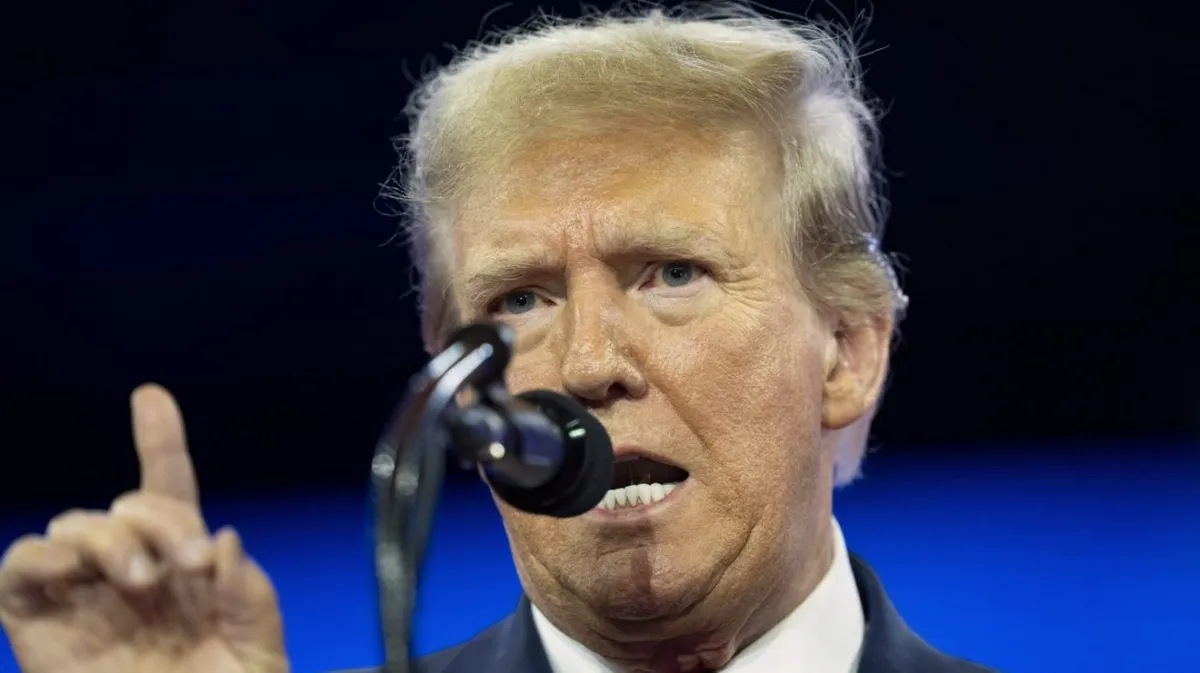
On Thursday, former President Donald Trump took to Truth Social to advocate for an end to nationwide injunctions, urging the Supreme Court to intervene in what he described as a series of legal challenges that have hindered his administration's agenda. Trump stated, “Unlawful Nationwide Injunctions by Radical Left Judges could very well lead to the destruction of our Country!” This statement reflects his ongoing frustration with federal judges who have ruled against various initiatives put forth by his administration.
In his post, Trump characterized the judges as “Lunatics” who disregard the potential consequences of their “very dangerous and incorrect Decisions and Rulings.” He asserted that it is the “obligation of Law abiding Agencies of Government to have these ‘Orders’ overturned.” Trump's remarks highlight a broader concern among some politicians regarding the role of the judiciary in shaping policy, particularly when it comes to issues where judges may appear to overstep their bounds.
Trump expressed his belief that judges “want to assume the Powers of the Presidency” without being elected, a sentiment that has been echoed by various political figures who argue that judicial decisions can sometimes carry political implications. However, legal experts emphasize that judges are intentionally not elected to ensure their rulings are free from political pressures, allowing them to make impartial decisions based solely on the law.
“Stop nationwide injunctions now, before it is too late,” Trump continued, urging Chief Justice John Roberts and the Supreme Court to act quickly. He warned, “If Justice Roberts and the United States Supreme Court do not fix this toxic and unprecedented situation IMMEDIATELY, our Country is in very serious trouble!” This urgent plea underscores the former president's view that the judicial system is currently at odds with the executive branch, creating a precarious situation for governance.
The Trump administration has encountered numerous injunctions from federal judges, effectively pausing key elements of its policy agenda. For instance, last weekend, James Boasberg, the chief judge of the U.S. District Court for the District of Columbia, issued an order that halted the deportation of a group of Venezuelans, some of whom are alleged members of the Tren de Aragua gang, to El Salvador. This ruling was met with criticism from Trump, who labeled Boasberg a “Grandstander” in a separate post.
In another significant ruling, a federal judge blocked Trump's executive order that aimed to ban transgender individuals from serving in the military. Furthermore, a recent decision mandated that the departments of Agriculture, Defense, Energy, Interior, Treasury, and Veterans Affairs must reinstate probationary employees who had been terminated. Earlier this month, U.S. District Judge John McConnell ruled to extend an injunction against the Trump administration’s efforts to freeze payments for federal grants, adding to the list of legal setbacks the former president is facing.
As Trump continues to call for an end to nationwide injunctions, the debate over the balance of power between the judiciary and the executive branch remains a contentious issue in American politics.